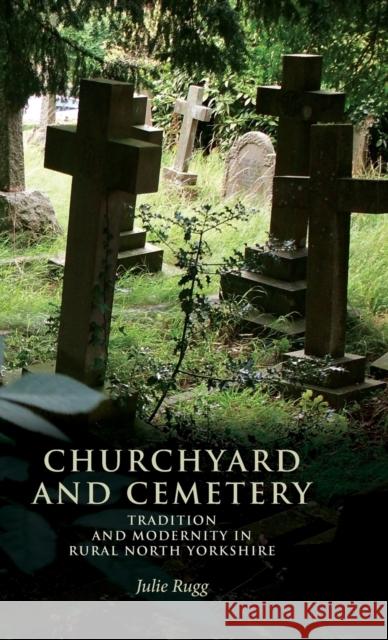Churchyard and cemetery: Tradition and modernity in rural North Yorkshire » książka
Churchyard and cemetery: Tradition and modernity in rural North Yorkshire
ISBN-13: 9780719089206 / Angielski / Twarda / 2013 / 448 str.
Churchyard and cemetery: Tradition and modernity in rural North Yorkshire
ISBN-13: 9780719089206 / Angielski / Twarda / 2013 / 448 str.
(netto: 414,80 VAT: 5%)
Najniższa cena z 30 dni: 431,97
ok. 30 dni roboczych
Bez gwarancji dostawy przed świętami
Darmowa dostawa!
The 1853 Burial Act introduced changes that would affect every English town and village outside London. New cemeteries looked set to replace the centuries-old churchyard, removing the dead from the heart of the community, and burial became a scientific rather than a spiritual concern. The secularisation of burial has long been regarded as an essential symbol of modernity, but was this process so straightforward? This study challenges a long-standing tendency to regard the churchyard as inherently 'traditional' and the cemetery as essentially 'modern.'
This fascinating volume reviews the burial history of central North Yorkshire. New evidence demonstrates that the Church of England continued to have a substantial role in burial provision, and largely benefited from the Burial Acts. Furthermore, reviewing churchyard and cemetery provision in tandem demonstrates that one did not necessarily replace the other. Rather, both were subject to the play of new expectations for burial space to guarantee that families could be buried together with opportunity for formal commemoration. Population in the area declined, but demand for burial space meant that many dozens of churchyards were extended, and forty new cemeteries were laid out.
Sure to become essential reading for modules on Victorian death, this book is accessible to an undergraduate audience at the same time as providing clear narrative and theoretical frameworks to challenge presumptions at higher levels. It will be also be invaluable to anyone involved in the management and conservation of burial ground.











